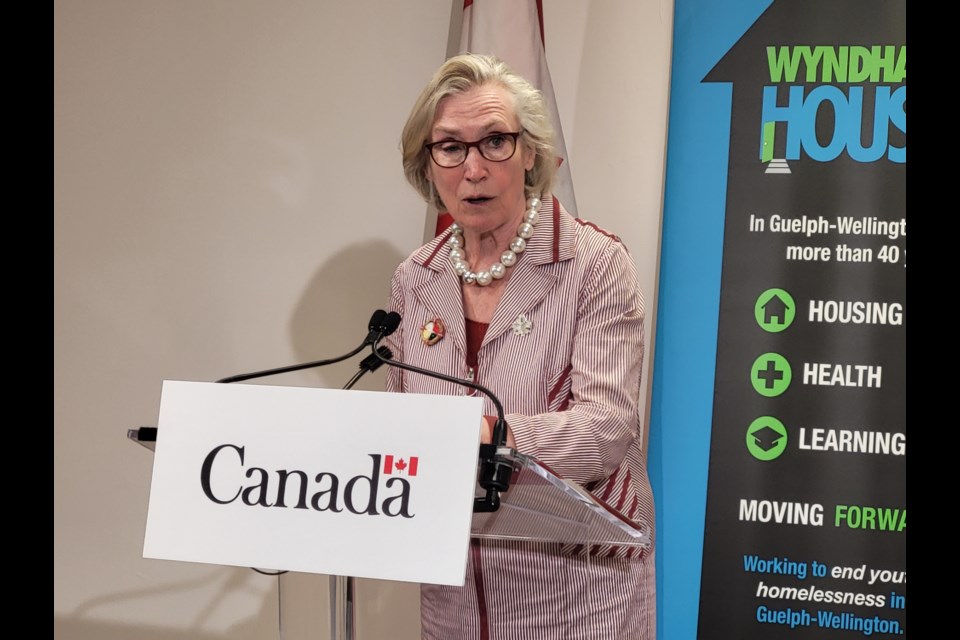The federal government announced Monday that $2.9 million in funding will be going to five Guelph organizations in an effort to expand and enhance services addressing the overdose and substance use crisis in the region.
Minister of Mental Health and Addictions and Associate Minister of Health Carolyn Bennett made the announcement along with MP Lloyd Longfield at Wyndham House Concurrent Specialized Youth-Hub.
The programs receiving funding are focused on trust-based care that puts the person in need before the system, with an emphasis on providing care to groups who have typically been marginalized and excluded from traditional care systems.
“We know that peer support is sometimes the most trusted way of having people using drugs enter a trusted relationship, that can actually open the door to safety,” said minister Bennett. “We have to do more. We have to be able to bridge those gaps in our health systems so that more people can get the lifesaving care that they need.”
The money will be distributed as follows:
- Over $1 million to Wyndham House to expand their concurrent specialized youth hub
- $149,000 to Mental Health Association Waterloo-Wellington to train and certify peer support workers dealing with substance use concerns
- $207,500 to Stonehenge Therapeutic Community Centre to implement their peer-to-peer overdose response program, providing peer-led, low-barrier, urgent response to drug poisonings
- $153,000 to HIV/AIDS Resources & Community Health to continue providing outreach to those who use substances and to provide training on nalaxone use
- Over $1.3 million to the Guelph Community Health Centre to increase the capacity of the safer supply program and provide wraparound care for participants
According to Wyndham House program director Kristen Cairney, the introduction of these services will enable them to eliminate the triangle leading to high levels of drug poisoning, suicide and violence.
During the first year of the pandemic, there was a 96 per cent increase in opioid deaths compared to the year before, with the majority of deaths occurring in BC and Ontario, and with the majority of deaths among those aged 20 to 59.
In Ontario, there were 2,816 opioid-related deaths and 2,443 opioid-related hospitalizations in 2021 alone, meaning that about eight people die each day in the province as a result of opioids.
“This is no longer a they problem. This is an us problem,” Bennett said. “Together we will end this national health crisis.”
It’s not just about providing more services, but better service – service that is evidence-based, culturally safe and trauma-informed.
Cairney noted the substance use and overdose crisis is linked to homelessness and mental health.
This is a problem largely because, for instance, services designed to treat substance abuse don’t have the capacity or resources to treat mental illness, and can be exclusionary of those with things like developmental disabilities and fetal alcohol spectrum disorder.
“We didn’t find this accessible, so we decided to venture in a different direction,” Cairney said.
“This expansion will allow (people in our community) to get immediate access to complex and concurrent team-based care under one roof. With this expansion, we will be able to provide wraparound mental health treatment assessment, primary care, nursing, psychiatry, peer support, case management, family support and more,” she said.
Their program will enable youth to receive both timely assessment and treatment “with a variety of care options using a harm reduction model.”
“We're not expecting young people to adapt to a system that's never worked for them, we're going to change our system,” Bennett said.
The funding is part of the Substance Use and Addictions Program (SUAP), which will see nearly $40 million in funding to support people who use substances across Canada through 73 innovative projects, including the five taking place in Guelph.
